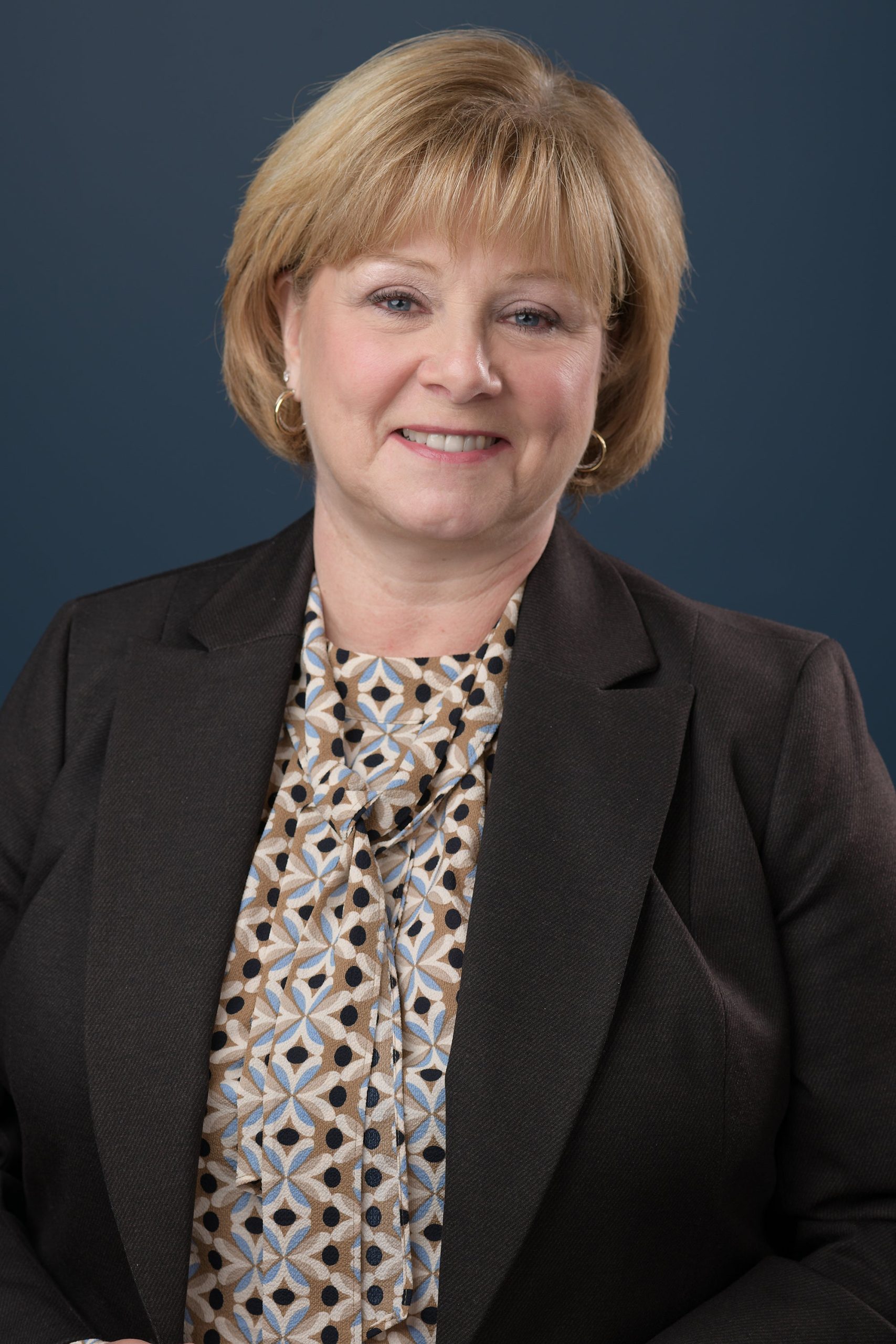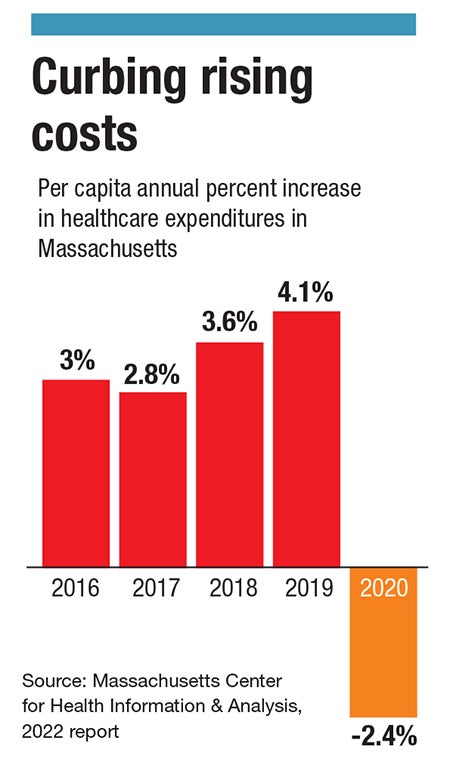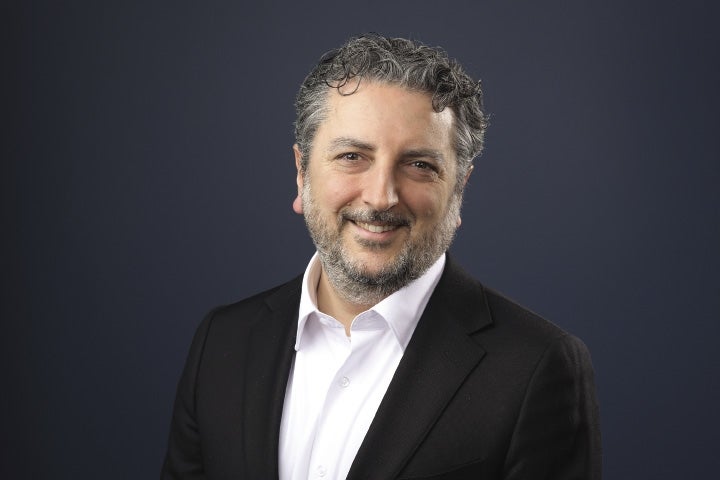As healthcare inequities remain a persistent and pressing issue, the identification of ways the healthcare system can make future-focused moves to address them is top-of-mind at Commonwealth Medicine.
Get Instant Access to This Article
Subscribe to Worcester Business Journal and get immediate access to all of our subscriber-only content and much more.
- Critical Central Massachusetts business news updated daily.
- Immediate access to all subscriber-only content on our website.
- Bi-weekly print or digital editions of our award-winning publication.
- Special bonus issues like the WBJ Book of Lists.
- Exclusive ticket prize draws for our in-person events.
Click here to purchase a paywall bypass link for this article.
In its quest to identify and address healthcare inequities, Commonwealth Medicine, the healthcare consulting arm of UMass Chan Medical School in Worcester, has created the new position of associate executive vice chancellor, market growth, and transformation. Filling the role is Kaha Hizanishvili, former chief of provider and pharmacy programs at MassHealth.
As healthcare inequities remain a persistent and pressing issue, the identification of ways the healthcare system can make future-focused moves to address them is top-of-mind at Commonwealth Medicine. The new position and its goals, part of UMass Chan’s strategic plan, are intended to respond to the marked changes in the healthcare landscape and identify ways to move forward.
Much of Hizanishvili’s previous work was focused on extending the Medicaid dollar in Massachusetts, and though that will be a perspective he brings to Commonwealth Medicine, a large part of the focus of the new role is about expanding healthcare access and equity.
“When we talk about savings, what that really means is it goes well beyond dollars saved,” Hizanishvili said. “That translates to better access, better coverage, more services provided.”
A primary focus for Commonwealth Medicine and of this added role is finding and addressing gaps preventing human services clients from providing the necessarily equitable healthcare, said Lisa Colombo, executive vice chancellor for Commonwealth Medicine at UMass Chan.

“In multicultural communities like Worcester, there are cultural norms in different backgrounds,” said Colombo. “We don't always understand very well how they access care.”
Disadvantaged communities are now the focus, said Colombo. During the early days of the coronavirus pandemic, ways in which cultural groups in the region were interacting with medicine became clearer, she said, citing vaccine hesitancy as one example.
One challenge locally, particular to the pandemic but pointing to a larger trend, said Colombo, is misunderstanding how certain cultural groups interact with the healthcare system. Cultural norms dictate how people access healthcare, and it's a priority for Commonwealth Medicine and this new position to identify these norms, understand them, and respond to them in a way that increases healthcare utilization.
Prioritizing those with the greatest needs
Commonwealth Medicine, which has 1,100 employees and partners with other health and human services organizations as clients, operates across the state and collaborates nationally, but being based at the medical school in Worcester means it is specifically attuned to issues in Central Massachusetts. The main issues preventing accessible health care in the region, said Colombo, are related to underserved populations, whether the reason they are underserved is socioeconomic, geographic, or due to mental health issues or the lack of adequate health insurance.
“The way we want to deliver care might not be a perfect match,” she said, “but we work really hard to try to meet them where they are.”
Hizanishvili will be tasked in the role with finding tangible ways to do so for groups with varying needs.
“It’s certainly not a one-size-fits-all solution,” said Colombo, “because there are differing disparities in each community.”
Cost savings can’t be the only focus, said Lauren Peters, former undersecretary for health policy for the Massachusetts Executive Office of Health and Human Services, who in her role partnered closely with Commonwealth Medicine on state initiatives.
Now executive director of the Center for Health Information and Analysis, Peters stressed the importance of work adding value to the healthcare system, particularly with behavioral health.
“Behavioral health has been underinvested in, and increased access and bolstered service lines are needed,” said Peters.
Additional priorities for healthcare and human service organizations should be addressing disparities and issues in the workforce, particularly nursing shortages, said Peters.
A huge driver of Hizanishvili’s role is identifying what Commonwealth Medicine has successfully implemented in Massachusetts and getting that knowledge to providers and service organizations in other states.
“It’s about being good stewards of health care,” said Colombo. “We have offerings that are benefiting Mass. in a very positive way, and we can spread it across the country to realize the same kinds of benefits.”
Sharing solutions
Commonwealth Medicine has business and connections in 25 other states as far as Hawaii, but identifying the specific needs and mechanisms of interstate sharing will be a focus of Hizanishvili’s position. As a member of the executive team at MassHealth before joining Commonwealth Medicine in early January, Hizanishvili led restructuring of payments for community health centers and negotiations processes for pharmacy.
“Problems from state to state, more often than not, are similar,” said Hizanishvili. “All states have underserved populations.”
Despite similarities in issues, specific legislation may differ state to state and prevent systems working in Massachusetts from functioning the same elsewhere.
At the same time, the process should be informed and reciprocal, said Colombo.
“If someone is doing it better, faster, cheaper, we want to know about it,” she said.

Specifically in Massachusetts, MassHealth has in the past six years achieved a zero gross in effective pharmacy spend, said Hizanishvili, whose expertise is in this area. Its system of rebates on the state level, which have increased yearly, can be utilized elsewhere. States can negotiate their own rebates, said Hizanishvili, something Massachusetts has done effectively over the past several years to save billions.
This area is one in which Commonwealth Medicine sees the biggest potential impact, said Colombo, is possible utilization in other states. She cited the State Supplemental Program, a program for which Commonwealth Medicine consults the Massachusetts Department of Transitional Assistance, which now saves $21 million annually, as an example.
Underscored in all of this is the real benefit of healthcare savings at the state level, said Hizanishvili.
“When we talk about hundreds of millions of dollars in Medicaid savings, that’s not money that goes into the ether,” he said. “It’s money that goes to create better health outcomes for community members who need it the most.”
CORRECTION: A previous version of this story incorrectly said Commonwealth Medicine advises the Massachusetts Department of Transitional Assistance on the Supplemental Nutrition Assistance Program. The correct program is the State Supplemental Program.

